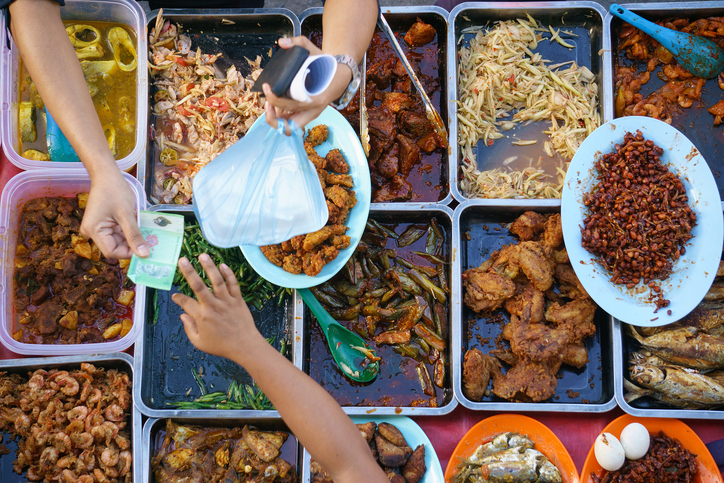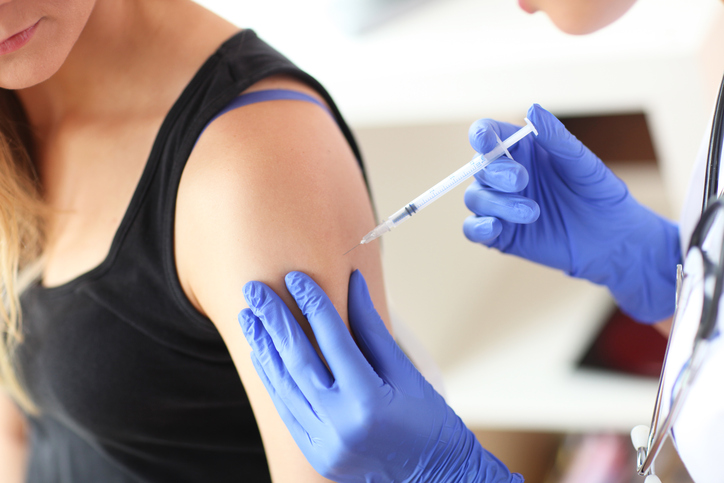- webnoviny.sk - What to eat and drink with diarrhoea
- imodium.sk - What causes diarrhoea
Summer diarrhea: what causes it and what does it manifest itself in? How to manage it?

Diarrhoea occurs more often in the heat and summer. What causes it, what are its symptoms, risks, how to get rid of it effectively? Brief and clear information can be found in the article.
Article content
Well known is the traveller's pharaoh's revenge.
Its main symptom is well known to us. In addition, it is characterized by other difficulties. Diagnosis is not difficult. Treatment does not require special needs. But sometimes hospitalization is necessary. Dehydration is a risk.
In developing countries, it is still the leading cause of death.
Diarrhoea is not just one thin stool, but...
Professionally, it's called diarrhoea. It's not just one loose stool. Diarrhoea has a definition and rules.
Diarrhea is defined by the following characteristics:
- at least 3 to 5 stools in 24 hours
- the consistency of which is watery (runny), unformed
- a quantity of more than 250 grams per day
Diarrhoea is frequent, frequent defecation and in large quantities.
It is usually of short duration and occurs rapidly. It is then referred to as acute. It lasts for less than 14 days.
Chronic, long-lasting persists for more than 30 days.
The first type is inflammatory, when the inflammation affects the lining of the intestine. There are also secretory and osmotic. Secretory is characterized by increased excretion of water into the intestine. Osmotic by decreased absorption of substances in the intestine into the body.
Diarrhea also serves as a defense mechanism for the body. The digestive tract expels harmful substances from the body, such as after eating spoiled food or in poisoning.
Is there a risk of complications and what should be looked out for?
Normal diarrhoea usually lasts for a day or two. It ends without complications.
However, diarrhoea is at risk of complications. One can be dehydration, for example. The greatest risk is for newborns, infants, young children and even older children.
Likewise, dehydration is also a risk for adults, especially the elderly.
Read also:
What are the symptoms of dehydration
Dehydration in children is dangerous
Dehydration and diarrhea is further associated with disruption of the internal environment and a decrease in mineral levels. For more detailed information on homeostasis or the internal environment, we offer an article that refutes the claims of over-acidification of the body.
What causes it?
Diarrhoea is a symptom that occurs in a number of diseases. It can be infectious and non-infectious. Infectious is caused by, for example, bacteria, a virus or a parasite.
The spectrum of non-infectious causes is diverse. It also occurs as a consequence of food intolerance, autoimmune disease or as a symptom of poisoning.
It can be caused by drugs such as antibiotics, but also by radiotherapy or chemotherapy. It should also be expected after taking a laxative.
Infectious diarrhoea is most often caused by contaminated food, water and poor hygiene standards, regardless of age.
Even during the summer, do not forget to wash your hands regularly.
This is why, especially during the summer, it is important to ensure that food is fresh and of good quality and that it is sufficiently cooked or washed. This is, of course, all the more true when travelling and holidaying in risky areas.
Dangers are particularly associated with a combination of heat, faulty storage or transport in the case of dairy products, eggs, mayonnaise and meat.

The table below lists the most common causes of diarrhoea
| Origin | Description |
| Infectious cause | |
| Bacteria |
The cause may be an imbalance of the body's own microflora (dysmicrobia) or infection with foreign bacteria
|
| Virus |
everyone is probably familiar with the term intestinal virosis
|
| Parasite | giardiasis is well known also read the article about the connection between parasites and pets |
| Non-infectious cause | |
| Medications |
Their main, side or adverse effect
|
| Food allergy and intolerance | increasingly common nowadays: |
| Dietary intolerance |
affects for example:
|
| Poisoning | intoxication by poison, chemicals, drugs, alcohol
|
| Stress |
psychological stress and strain and associated digestive disorders, such as
|
| Hormonal changes |
in women during:
|
| Inflammation of the digestive tract |
|

Let's look at all the summer problems together:
Our health in summer - sun, heat, injuries and illness
Symptoms and problems with diarrhoea
Diarrhoea is a watery stool. However, the trouble does not end there. Emptying the runny contents through the rectum would be the least of the problems.
The most common symptoms of diarrhea:
- Thin stools
- mucus in the stool, even foam
- change in colour of stool, green, with admixture
- weakness
- lack of appetite
- nausea and heaviness in the stomach
- pain in the abdomen, lower abdomen
- a feeling of nausea or vomiting
- increased body temperature to fever
The kind of problems that occur with diarrhea depend largely on the underlying cause. With infection, fever is common. In contrast, a functional problem such as irritable bowel syndrome is not characterized by an increase in body temperature or a disruption of the intestinal lining.
Abdominal pain may occur only with the urge to defecate or be present continuously. Similarly, before or after eating.
In children, diarrhea should be observed:
- inappetence
- weight loss
- pallor
- apathy, lethargy
- increased fatigue to drowsiness
- loss of interest in surroundings and usual hobbies
- change in stool colour and admixture of blood
- if diarrhoea lasts for more than three days, seek professional help immediately
- fever - temperature above 38 °C for more than 24 hours
- if diarrhoea in children is accompanied by vomiting, lasting more than 12 hours
- yellow discolouration of the skin and whites of the eyes
- distended, hard and tender abdomen
- reduced urine output to cessation of urination
- rapid pulse, pallor and increased sweating and cold sweat
These 14 points are very important in childhood. Do not delay a visit to the pediatrician (pediatric doctor) if one or more symptoms or a combination of symptoms occur.
Consult a paediatrician for diarrhoea in newborns or infants.
Diarrhoea in young children tends to occur as teeth grow.
Not only in children, but also in adults and the elderly, there are certain warning signs that should be noticed and not overlooked. Subsequently, professional help should be sought immediately.
Stool color is not a scientific discipline:
What should we know about stool
When is black stool normal and when should we seek medical attention?
Warning signs in diarrhea that you cannot miss:
- Increased frequency of diarrhea
- association of vomiting
- inability to take fluids
- admixture of blood and bloody stools
- black colour of stools
- putrid smell of stool
- admixture of mucus and foam
- combination of fever and diarrhoea for more than two days
- intense abdominal pain, colic, cramps
- rash
- yellow discolouration of the skin and eyes
Treatment is important, but also prevention
Diarrhoea is best avoided, and sufficient prevention should be the answer.
It's important all year round. And in the heat of summer, this is doubly true.
Personal hygiene is essential. Pathogens can enter the body through the faecal-oral route, i.e. dirty hands. Food and water contamination is common.
Don't forget to vaccinate
Vaccination is a form of appropriate prevention before travelling to risky areas such as Egypt or Turkey. Sufficient information on vaccination before travelling is given in the article Vaccination, its importance before travelling abroad - foreign diseases.
When abroad, choose your food and liquids wisely. Buy them in shops, not on the street. Buy bottled water in its original packaging. Open them yourself. Wash, peel and re-wash vegetables and fruit. Boil food sufficiently.
Antibiotics.
They cannot be avoided completely.
Often they are the cause of diarrhoea, so remember to take probiotics if you are treated with them. Do not take them together with antibiotics, of course. Keep a sufficient time gap, at least two hours.
Prevention of diarrhea:
- Know the cause of chronic diarrhoea, its triggering factors
- take care of your digestive tract
- take probiotics
- reduce stress
- relax and get adequate, quality sleep
- follow an appropriate diet
- good hygiene and hand washing is essential
- change your lifestyle
- get moving
- think about preventing traveler's diarrhea, take probiotics weeks in advance
- keep your kitchen, bathroom and toilet clean
- beware of water from unknown sources
- watch out for risky foods in summer and keep them fresh
- wash fruits and vegetables
- defrost meat quickly, cook it sufficiently and eat it immediately
- don't eat on the street on holiday and drink bottled water
- antibiotics only if necessary
- if you have diarrhoea, don't spread it around, isolate yourself

How to manage diarrhoea?
The basic prerequisite for diarrhoea is to manage its treatment. This is the only way to prevent the deterioration of the health condition. Home treatment is only an option for diarrhoea that lasts for a short time.
Persistent or chronic diarrhoea should be treated professionally. This is especially true if there are warning signs.
Rehydration
First and foremost, a sufficient drinking regime is important. Water leaves the body uncontrollably through the intestines with the stool. The moment vomiting is associated and it is not possible to replenish the water in the body, professional help should be sought.
Rehydration (adequate fluid replacement) also includes mineral and trace element supplementation.
It should first start with smaller amounts of water. For example, by teaspoonfuls, small sips, and gradually move on to normal fluid drinking, with good tolerance.
Suitable fluids are:
- still mineral water and plain water
- tea, rooibos, vilcacora, fennel or chamomile
- Later, fruit and vegetable juices, which will also replenish energy and vitamins
- rehydration solutions
Coffee, carbonated and sweetened waters, black tea are inappropriate.
Alcohol should be excluded completely.
Food, what to eat with diarrhea?
What can we eat during diarrhea and what not?
The dietary intake must be adjusted. However, a diet for diarrhoea does not mean the complete exclusion of food. In the initial phase, it is best to take fruits such as blueberries, blackcurrants, or applesauce and bananas. But also rice or rusks.
For more information, see also the magazine article on the diet for diarrhoea, constipation and vomiting
If the diet is tolerated, supplement with peas, corn, carrots, potatoes and whole grain pasta. Oatmeal and porridge are good. Stewed poultry and beef can be served as well.
Bread can also be eaten, but not fresh.
Unsuitable foods are:
- fatty food
- fresh bread
- beans and lentils
- candy, sweets, ice cream
- salty and potato chips
- apricots, plums or peaches are also not recommended
- cabbage
If you have a young child, you must continue breastfeeding. If this is not possible, you must see a doctor immediately.
Probiotics
The role of probiotics is to restore stability for the intestinal microflora. In diarrhea, it is best to take them right from the start. Also when being treated with antibiotics.
In addition to probiotics, also think about prebiotics.
You can buy them at the pharmacy. But you can also find them in foods such as:
- kefir
- fresh yoghurt, white yoghurt without flavouring for diarrhoea
- acidophilus milk
- bryndza
- sauerkraut
- brewer's yeast
Probiotics containing probiotic cultures of Saccharomyces boulardii, Lactobacilus acidophilus and Bifidobacterium, Enterococcus faecium are best.
What is the required dose of probiotic bacteria?
2-10 billion twice a day.
How long do I need to follow the diet?
You ask about the sufficient length of the diet? The restricted regimen should last at least as long as the diarrhea lasted.
For diarrhea that lasted longer, it should be at least 5 days.
It is a mistake to go straight to normal eating, even eating heavy and fatty foods, once the discomfort has subsided.
The digestive tract needs time to recover and regenerate.
What medication should I take?
The choice of medication is in the hands of the doctor or pharmacist. Of the safe ones, black coal is available. However, this may reduce the effect of the medication. Care should be taken with the dosage period.
Subsequently, it is medicines to support the intestinal microflora and intestinal disinfection.
Funny video about diarrhea
Interesting resources










